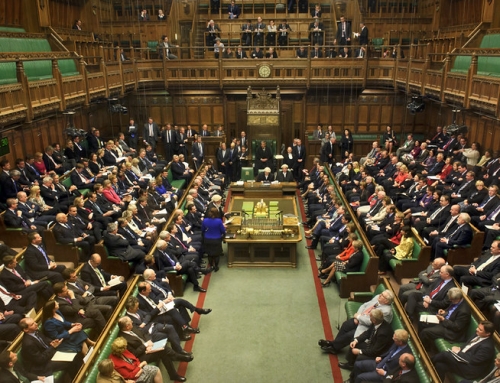On April 16th the Office of the Children’s Commissioner published a report into school admissions. Its investigation arose out of its previous work on the fairness and legality of school exclusions. During this investigation the OCC had been told confidently, by witnesses, including head teachers, legal experts and academics that schools misuse the admissions system to manipulate their intake. So the decision was made to investigate these claims. However the Commission found that it is unlikely that large numbers of schools do this but it does call for the DfE to commission more research. The project involved several strands.
The National Foundation for Educational Research (NFER) was commissioned to put out a call for evidence and information on what was actually happening. The report says that despite the NFER’s painstaking and detailed work the sample of parents responding was small and exclusively those of children with special educational needs (SEN). As the Dr Maggie Atkinson Children’s Commissioner for England says ‘Their stories differ markedly from the very positive general picture of schools complying with statutory requirements. These parents describe, often in upsetting terms, school staff acting dismissively towards them and their children. They describe schools failing to respond to phone calls, emails and personal approaches or telling parents they did not think the child would ‘fit in’ at the school. The results are not fair on the child and we need to acknowledge the denial of rights involved’.
As well as the NFER findings the report looks at admissions in general and how some parents might be put off from applying in the first place. The report says it found some schools charge as much as £300 per child for uniforms plus more for sporting and other equipment costs. When a basic uniform from a high street supplier costs a quarter of that amount, it is reasonable to assume that some parents on low incomes may be dissuaded from applying. Section 1.8 of the School Admissions Code states that schools must not have policies around school uniform which might discourage parents from applying.
The report also compares Year 7 admissions into neighbouring secondary schools in the same council area. It found that in some localities, in spite of having identical admissions criteria and supposedly wholly comprehensive intakes, neighbouring schools had very different intakes. High achieving children in these areas were clustered in one or two schools, with others taking more low achievers. None of the schools concerned overtly state prospectuses or other materials that selection is in operation. But as the Commissioner says ‘given everything else about them is equal, it is clear that something is amiss.’
The report also looks at the work of the official systems which are expected to be able to put things right, in particular, the Office of the Schools Adjudicator, and where schools in a diversifying system remain local authority maintained, the Local Government Ombudsman. Looking at the work of the Schools Adjudicator the report highlights two particular practices which may distort a school’s intake – the use of a complicated points system rewarding work carried out usually related to religious observance and giving priority to primary children who have attended the school’s nursery provision. The report also expresses concern about banding using reference to national attainment levels.
The Commissioner concludes that schools must review their admissions policies. ‘When they do, they must make sure that nothing they do, or do not do, will put children off applying for a place. This extends to the way they speak and write to people; the messages they place on their websites; their policy on uniform or the costs of school trips; and how they answer questions from parents and children. This is not just a ‘nice to have’ or ‘good practice’. It is the law and it is non-negotiable’.
The report’s recommendations –
1. The Department for Education, working with the Office of the Schools Adjudicator (OSA), should issue further clarification on the difference between criteria based on religious observance, which are lawful, and those based on non-religious service, which are not. OSA should seek consensus from faith bodies on the differences between these criteria, drawing on existing good practice in faith schools in England.
2. The Local Government Ombudsman should be given jurisdiction to examine admissions appeals for all state-funded schools. This would ensure that all parents or carers had access to a consistent route for further appeal, regardless of the school they attend. It would also ensure consistency with the remit of the OSA, which has jurisdiction over admissions arrangements for all state-funded schools
3. The OSA should examine whether there have been cases where it has taken a different view regarding the legality of admissions arrangements from that taken by appeals panels, and take appropriate steps should it prove to be a significant issue.
4. Further large-scale, qualitative research is required to enable all concerned to understand the specific nature and scale of inequality in admissions outcomes and to report on the reasons for this. This should be a priority for the Department for Education’s future programme of commissioned research.
5. All admission authorities, as part of the regular reviews of admission arrangements which they are required to undertake, should conduct an assessment of the extent to which existing arrangements meet their duties specified in the Public Sector Equality Duty (PSED) under the Equality Act 2010. They should particularly examine whether any of their actions may have the effect of dissuading particular groups from applying, and if so what they should do to counter this effect and comply with the Duty.
6. As part of their work in co-ordinating admissions, local authorities should be given powers to collect anonymised demographic information on the characteristics of children applying for a place at the state funded schools across their areas, alongside data on places offered and accepted.
7. The Department for Education should issue a clear statement on the degree to which it is lawful for schools to act in any way that has the effect of dissuading certain parents or carers from applying for a place. Should legal advice indicate any such action is currently lawful, urgent steps should be taken to amend the law. Being dissuaded from applying to a school should become grounds for parents to appeal against admissions decisions. Appeals on this ground should be treated in the same way as other appeals.
‘It might be best if you looked elsewhere’. An investigation into the schools admission process.
Office of the Children’s Commissioner. April 2014
http://www.childrenscommissioner.gov.uk/content/publications/content_798




